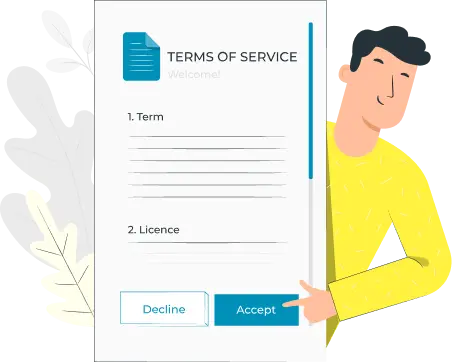Fixed-term employment refers to a contractual agreement between an employer and an employee where the employment relationship has a predetermined end date. This end date can be tied to a specific project, a seasonal need, or a defined period. Unlike permanent employment, fixed-term employment offers flexibility, allowing both parties to assess the fit and explore potential long-term opportunities.
Seasonal or Project-Based Needs
Fixed-term employment allows employers to adjust their workforce to specific needs, such as seasonal fluctuations or project demands. This flexibility helps organizations manage labour costs and resources efficiently, ensuring the right number of employees for peak periods or special projects without committing to permanent staffing. By leveraging fixed-term contracts, companies can adapt to changing business conditions while maintaining operational efficiency.
Skill-Specific Hiring
Fixed-term employment provides the opportunity to bring in specialized talent for specific tasks or projects without a long-term commitment. This approach allows organizations to access expert skills and knowledge tailored to their immediate needs, enhancing the quality and efficiency of project outcomes. By hiring skill-specific professionals temporarily, companies can address niche requirements and adapt to evolving business demands while maintaining flexibility in their workforce.
Trial Period
Fixed-term employment can serve as a trial period for both the employer and employee to assess mutual compatibility and the potential for a permanent role. This arrangement allows both parties to evaluate the fit and performance before committing to a long-term employment relationship. It provides an opportunity to ensure that the employee’s skills and work style align with the organization’s needs and culture while also giving them insight into the company and their role.
Gain Experience
Fixed-term employment allows individuals to gain experience across different industries, roles, or companies. This exposure helps them build diverse skill sets, enhance adaptability, and broaden their professional network. It provides opportunities for learning and growth, making them more versatile and competitive in the job market. Individuals can better understand their career preferences and aspirations by working in varied environments.
Skill Development
Fixed-term employment provides exposure to new technologies, processes, and work environments, fostering skill development and career advancement. This varied experience helps individuals expand their expertise, adapt to different work settings, and stay current with industry trends. By continuously learning and applying new skills, they can enhance their career prospects and increase their value in the job market.
Flexibility and Work-Life Balance
Fixed-term contracts can offer greater flexibility, allowing individuals to pursue personal interests or explore other opportunities. This arrangement can enhance work-life balance by providing the freedom to manage time more effectively and engage in activities outside of work. It also allows individuals to take on varied projects or roles, supporting their personal and professional growth while maintaining a flexible career approach.
The temporary nature of fixed-term employment can lead to uncertainty and concerns about job security. Employees on fixed-term contracts may face challenges related to the potential for contract non-renewal or the lack of long-term stability. This uncertainty can impact morale and make it difficult for individuals to plan for the future. To mitigate these concerns, employers can communicate the contract terms and any potential for extension or transition to permanent roles.
Fixed-term employees may not access the same benefits as permanent employees, such as health insurance, retirement plans, or paid leave. This disparity can affect their overall compensation package and job satisfaction. Employers should consider offering fixed-term employees proportional benefits or alternative support to address these gaps and ensure they feel valued and fairly treated.
The transition between fixed-term contracts can lead to gaps in employment and income, which may create financial uncertainty for individuals. These gaps can also impact continuity in career progression and benefits. To mitigate these challenges, individuals might need to plan financially for potential periods without income and seek opportunities for networking or freelance work during transitions. Employers can support by providing notice of contract end dates in advance and potentially offering resources for job placement or career counselling.
Ensure that the terms and conditions of the fixed-term contract are clearly defined and understood by both parties. This includes specifying the start and end dates, scope of work, compensation, and termination clauses. Clear documentation helps prevent misunderstandings and disputes, ensuring that both the employer and employee have a mutual understanding of their responsibilities and expectations throughout the contract period.
Open and transparent communication between employer and employee is essential for a successful fixed-term contract. Regular feedback and performance reviews help manage expectations, promptly address issues, and identify potential long-term opportunities. This ongoing dialogue ensures that both parties are aligned on goals and performance, fostering a positive working relationship and increasing the chances of future collaboration or transitioning to a permanent role.
Building and maintaining professional relationships during fixed-term employment is crucial for future career opportunities. Networking with colleagues, supervisors, and industry contacts can provide valuable recommendations, referrals, and potential job offers. These connections enhance your professional reputation and can provide support and guidance as you navigate your career path beyond the fixed-term role.
Take advantage of training and development opportunities during fixed-term employment to enhance your skill set and marketability. By actively pursuing professional growth and learning new skills, you can increase your value in the job market, improve your performance in your current role, and better position yourself for future opportunities. This proactive approach to skill development can lead to career advancement and greater job satisfaction.
Plan for potential gaps in employment and income by budgeting and saving proactively. Creating a financial plan with an emergency fund can help manage periods without income and reduce financial stress. By setting aside savings and making informed budget decisions, you can better navigate transitions between fixed-term contracts and maintain financial stability.
Fixed-term employment can be a valuable tool for both employers and employees, offering flexibility, opportunities for growth, and a chance to explore new paths. By understanding the benefits and challenges and approaching fixed-term contracts with clear communication and proactivity, both parties can create a mutually beneficial and rewarding experience.
Disclaimer: This article and all information in it is provided for general informational purposes only. It does not, and is not intended to, constitute legal or tax advice. You should consult with a qualified legal or tax professional for advice regarding any legal or tax matter and prior to acting (or refraining from acting) on the basis of any information provided on this website.
Choose Glints TalentHub as your partner in Southeast Asia.
Building your Team in
Southeast Asia with Glints' EOR Service

Rapid
Team Setup
Launch Southeast Asian operations in a week for a seamless start

Full Suite of HR Offerings
Launch Southeast Asian operations in a week for a seamless start

Guaranteed 100% Compliance
Ensure total HR and legal compliance with expert local guidance

Dedicated & Immediate Support
Get quick, dedicated HR support within 24 hours